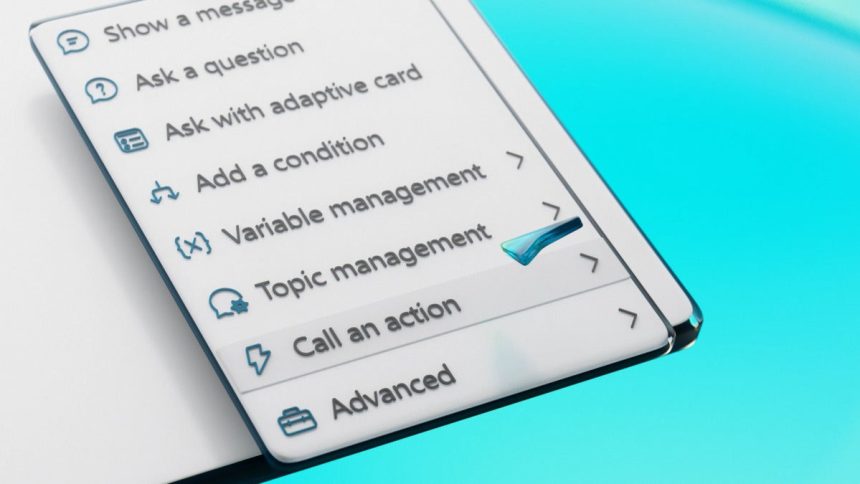As Copilot rolls out across its software products, Microsoft wants to give customers a way to tailor the generative AI (genAI) assistant to their individual needs. That’s the idea behind Copilot Studio, a new automation platform that lets businesses customize Copilot chatbots by connecting data from a wide range of apps, with the ability to publish their own genAI assistant for employee or customer access.
Microsoft announced Copilot Studio on Wednesday at its Ignite event. The company also unveiled integrations with Dynamics 365 Guides mixed-reality app.
“We definitely see demand from businesses to extend Microsoft Copilot to do more than just what comes out-of-the-box,” said Jason Wong, distinguished vice president analyst at Gartner. Copilot Studio builds on the capabilities of Microsoft’s Power Virtual Agents “to become much more useful than just as a low-code simple chatbot builder,” he said.
“Copilot Studio becomes a strong, complementary development tool to Power Apps and Power Automate,” said Wong. “It also uses the same connector framework as those products to enterprise systems, so that will give businesses confidence in how they integrate sensitive corporate data for generative AI use cases.”
Microsoft has been rolling Copilot out across its software portfolio in recent months, with the genAI assistant now generally available to larger Microsoft 365 customers. Copilot for Microsoft 365 taps into data held in the Microsoft Graph — emails, Word documents, and calendar information, for instance.
While that can be useful for tasks such as summarizing meetings or generating draft email responses, Copilot Studio provides access to a wider range of applications, with access to 1,000 pre-built connectors from the likes of SAP, Workday and ServiceNow, as well as OpenAIs GPTs. Customers can also build their own custom connectors to any data source.
This extends the functionality of the Copilot, allowing workers access to relevant corporate data when they interact with the genAI assistant, said Omar Aftab, Microsoft’s vice president of conversational AI. Early Copilot users have asked for internal, employee-facing functions such as legal, HR, and IT helpdesks to be accessible via AI assistant, he said.
“Now you have that. With Copilot Studio, Copilot experiences are customizable, extendable, and configurable,” said Aftab.
Businesses can create custom responses to employee queries, such as asking about parental leave or remaining vacation days. This is done via either a graphical interface or natural-language commands.
Copilot Studio users will also be able to tailor interactions with employees by authoring questions and responses. “Lots of enterprise customers are fine with letting the LLM [large language model] handle the long tail of users’ questions. But when it comes to super highly critical business questions, like ‘I want to process a return,’ or ‘I want to apply for leave,’ they don’t want to send it just to the LLM, they want to be able to author custom dialogues with exact control over what happens,” said Aftab.
As well as the ability to customize Copilot in Microsoft 365 (which is currently in public preview and accessible to customers who pay extra for the genAI assistant), Copilot Studio lets customers craft their own custom Copilot. This capability is now generally available.
Businesses build their own Copilot using low-code development tools and can publish it on a website to direct customers to a certain product, for instance, or integrate it with a finance app that provides information such as quarterly financial results.
According to Microsoft, Copilot Studio reduces the time required to create a genAI assistant for a specific purpose. “In the past, developers would have needed to train their own natural-language model and design each dialog,” Jared Spataro, Microsoft’s corporate vice president for modern work and business applications, said in a blog post. “Now, you can use natural language to describe what you want — and Copilot Studio will help you build and iterate the conversation design.”
A Copilot Studio admin center provides IT teams with tools to monitor usage analytics relating to Copilots, with visibility into any customizations and custom Copilots that are created and who built them.

